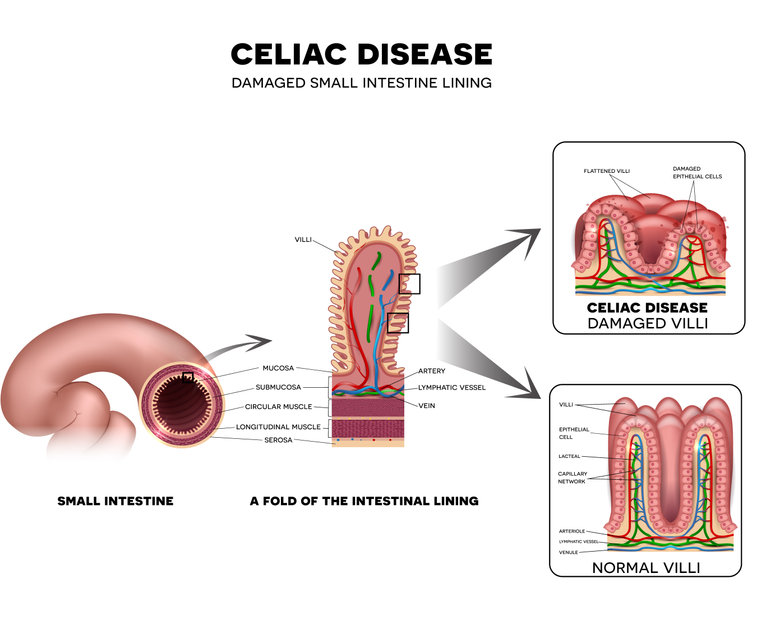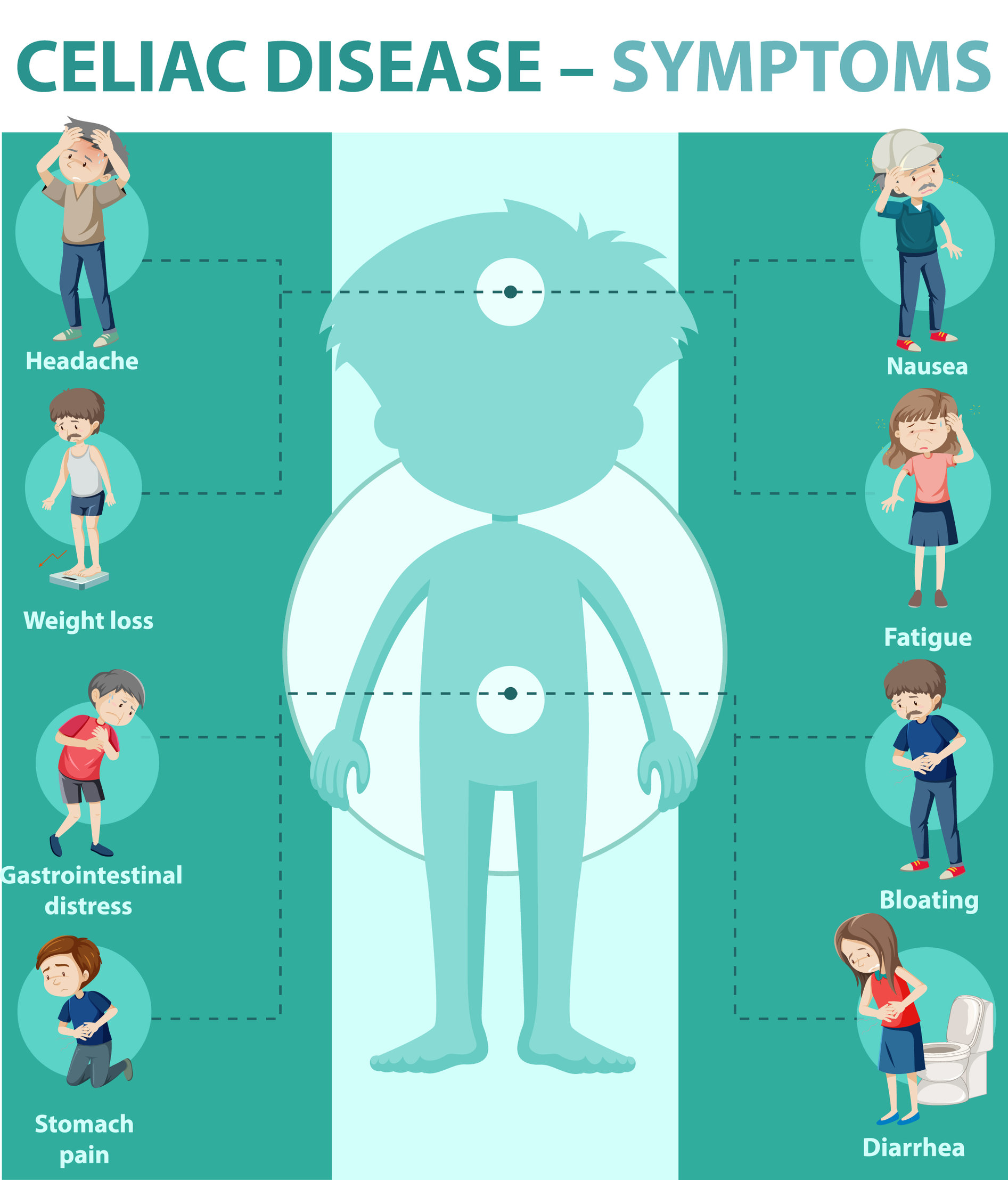What is Celiac Disease?
Celiac disease is a digestive condition triggered when gluten, a protein found in wheat, barley and rye, is eaten.

It is important to note that celiac disease is not a food allergy but an autoimmune disorder.
For those with celiac disease, their body responds to ingested gluten by producing antibodies that attack tissues in the small intestine, causing damage.
When the tissues in the intestine are damaged, it becomes very difficult for the body to absorb nutrients, which can lead to health problems such as malnutrition. When a child or teen has undiagnosed celiac disease, their growth and development can be affected.
It is estimated that about 1 in 100 people in Canada have celiac disease. If you have a sibling, parent or grandparent (close relative) with celiac disease, you have a greater chance of having the condition.

Common symptoms of celiac disease in children
Some of the more common symptoms seen in undiagnosed children and teens are:
- Poor growth or weight loss
- Lack of appetite
- Stomachaches or bloating
- Diarrhea
- Fatigue or irritability
- Iron deficiency
It is important to note that some people who have celiac disease may not show any gastrointestinal symptoms. In fact, almost 50% of people with celiac don't present with any symptoms.
If you suspect your child or teen has celiac disease
Talk to your child or teen’s doctor, share your suspicions and be sure to have these conversations before you make any changes to your child's diet. Removing gluten from their diet, before healthcare professionals conduct tests could affect test results, making it difficult to correctly diagnose and even delay a proper diagnosis.
If your child/teen’s doctor suspects celiac disease, they may order bloodwork as a first step to screen for the condition. If the bloodwork comes back positive, your child/teen will be referred to a gastroenterologist for more tests, like an endoscopy, to make a formal diagnosis.
If diagnosed with celiac disease, it would be beneficial to meet with a registered dietitian to learn more about adopting a gluten-free diet and optimizing nutrition. Dietitians are an excellent resource to help you learn about meal planning and maintaining a balanced diet, as well as decoding and reading labels so you can learn more about what gluten-based ingredients may be hiding in food products.
Is there a cure for celiac disease?
There is no cure for celiac disease, but the damaged caused by celiac disease to the small intestine can heal and be restored. This can only be done once your child/teen stops eating gluten.
A lifelong gluten-free diet means not eating any food with wheat, barley, or rye. And while oats don't contain gluten, they can be contaminated during harvest or processing, so it’s important to look for oats labelled “gluten-free” to be sure.
Now at days, many grocery stores have dedicated isles for gluten-free products. Many of these products are quite delicious and, from a taste perspective, have a similar taste and texture to those of gluten products. You can now purchase loaves of breads, pasta, pizza, there are many desserts to choose from, and gluten-free cold cut meats.
There are also many naturally gluten-free foods, such as: fruits, vegetables, legumes, a number of dairy products, fish, tofu, and unprocessed meats.
When a child/teen is diagnosed with celiac disease, some families choose to adopt a gluten-free diet together. However, this isn't always an option for families so it's good to consider the following if there will be gluten foods in the kitchen.
When preparing gluten-free foods, it is important to avoid cross-contamination:
- Use a separate toaster for gluten-free bread.
- When deep frying, use fat/oil that has never been used for gluten-containing foods.
- Cook gluten-free pasta in water that has not been used to cook gluten-containing pasta.
- Use separate cutting boards for gluten-free foods.
It might take some time before you get the hang of this new way of life and that's okay, you'll get it. It is important to make sure you have lots of resources to help guide you in the early days of transitioning to a gluten-free diet. A dietitian can be tremendously helpful, look for gluten-free recipe sites to inspire and gather meal ideas. We've compiled a number of additional resources for you to explore and will be adding new content, so check back.
Additional resources
- GI Kids: Celiac Disease: includes video and gluten-free guide for families
- Caring for Kids
- Growing Up Celiac Workbook
- Living gluten-free (Canadian Celiac Association)
- Beyond Celiac
- Celiac Disease (Hospital for Sick Children)
